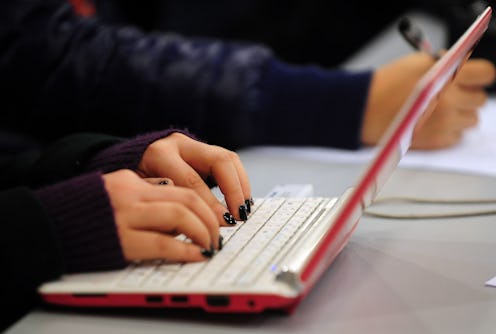Life
#FreeYourBody Movement Promoting Body Positivity
The Internet and social media has done a lot of great things for the world, but they've also put a lot of pressure on people to present ourselves as perfect — and made us feel like we're failing if we don't measure up to the perfect standards set by social media. In an effort to counteract that pressure, though, 16-year-old Tahlie Purvis has started the #FreeYourBody movement on WattPad to promote body positivity and improved representation. And one thing is for sure — the world certainly could use more of both.
It's not secret that we have a representation problem with our media. Unless you're white, straight, cisgender, thin-bodied, don't have any type of physical or mental disability or disorder, and adhere to conventional Western beauty standards, chances are you're either under-represented or misrepresented — or both. And this in turn puts a lot of pressure on people to try to live up to impossible standards, to fit ourselves into boxes, or to conform to some abstract, impersonal ideal that doesn't fit our real lives at all. And the insecurity it provokes can crush you — as social media star Essena O'Neill discussed before definitively quitting social media.
The pressure to portray ourselves as perfect on social media isn't just about the impossible standards set by more media representations — but media representations certainly don't help anything. And if we had better representation, if the only protagonists we ever seem to see weren't just thin, beautiful, and virtually always light-skinned, if instead all people were treated as worthwhile regardless of race, body-type, ability, or level of "attractiveness," who's to say we wouldn't be better able to accept ourselves, quirks and all?
Which is what makes the #FreeYourBody movement on WattPad so worthwhile. Conceived by a Canadian teen who uses the online pseudonym Tahlie Purvis, the campaign encourages people who share stories on WattPad to tag stories that feature characters with physical attributes rarely seen in stories.
"This can range from acne, to vitiligo, to an overweight person, to anorexia, to someone with black skin, to an amputee," the campaign explains. If a story has such representation, the author can put a #FreeYourBody sticker on the cover and tag the story. So far, 161 stories are featured on the campaign's page. And so far the campaign has been well received with over 4,000 people following already.
Hopefully, the movement only grows from here.
Image: Giphy
